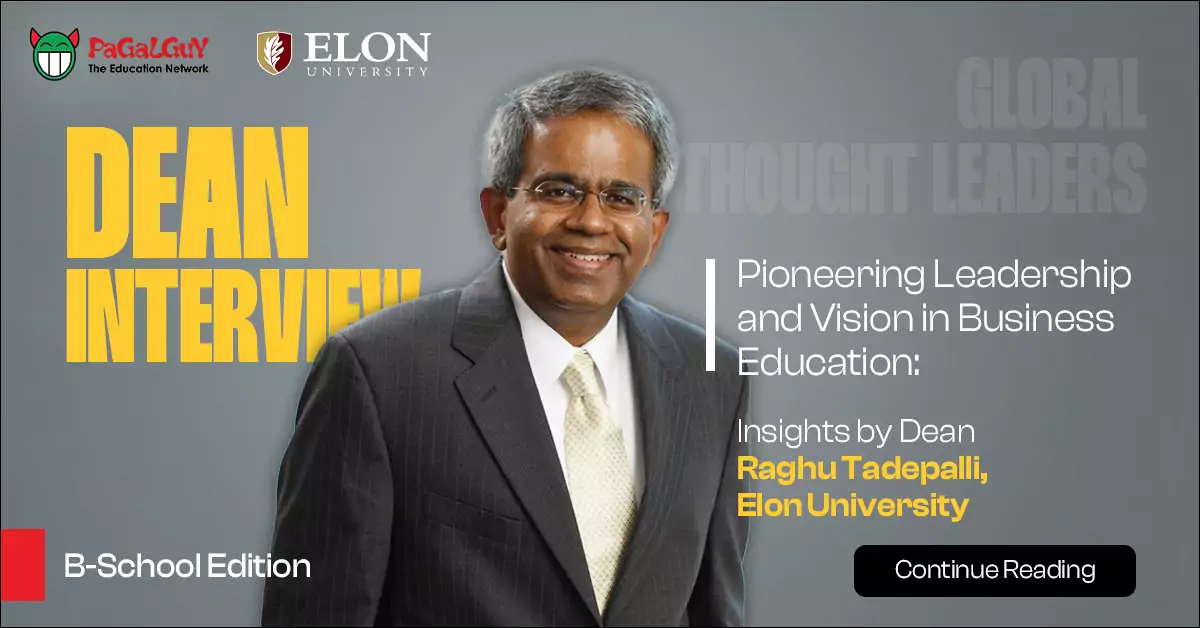
Dean Raghu Tadepalli, during an exclusive interview with PG’s Founder and CEO Allwin Agnel, delves into the shifting leadership paradigm in the MBA space. He shares observations on how Elon MBA is proactively adjusting to the ever-changing demands of the present business realm while offering guidance to Indian MBA aspirants on selecting a suitable business school aligned with their personal career ambitions.
In this dynamic era characterised by redefined business paradigms, the forefront of executive agendas is currently dominated by the concept of leadership. The ever-evolving global landscape calls for leadership approaches that are not only innovative and tailored but also deeply aligned with the evolving educational system and the role of business schools in cultivating genuine leadership. Within the ever-shifting terrain of business education, one individual emerges as an embodiment of pioneering leadership and innovation – Raghu Tadepalli. As the Dean of Elon University’s Martha and Spencer Love School of Business, Tadepalli brings to the table not just extensive experience and expertise but also plays a pivotal role in shaping the future of business education at Elon.
Before joining Elon, Dr. Raghu Tadepalli held the prestigious position of Murata Dean and Professor of Marketing at Babson College in Massachusetts. His transformative impact on the MBA curriculum rejuvenated Babson’s reputation, solidifying its status as a preeminent hub for entrepreneurship and business administration. As a widely recognised authority in marketing, Tadepalli boasts a substantial portfolio of peer-reviewed journal articles and presentations, spanning topics ranging from cross-cultural ethics to salesperson behaviour. Beyond academia, his commitment to teaching and mentorship shines through, with accolades including the coveted “Delta Sigma Pi Teacher of the Year” award. Dean Tadepalli’s illustrious career underscores his unwavering dedication to nurturing excellence and inspiring the next generation of business leaders, a journey further explored in this exclusive interview that delves into his visionary leadership at Elon University.
As part of our recent interview series, “#GlobalThoughtLeaders – B-School Edition,” we engaged in a candid conversation with Dean Raghu Tadepalli about the relevance of MBA education in 2023, his motivations for pursuing an academic path and his vision to establish the Martha and Spencer Love School of Business as a household name for students seeking to equip themselves with the knowledge and experiences necessary to become sustainable business leaders and change-makers. Here are excerpts from our enlightening conversation with him.
Q1. What motivated you to pursue the realm of academia, and was embarking on this journey a deliberate choice for you?
Ans: In 1982, my journey to the US commenced as I pursued an MBA with the initial intention of returning back to India to contribute to our family’s movie theater and other business ventures. The idea of embarking on a PhD path was far from my thoughts at the time. However, during my second semester of the MBA programme, an unexpected turn of events occurred when my graduate advisor invited me to join his colleagues for lunch. Their surprising suggestion was that I possessed the potential to excel as a PhD candidate. Although I was caught off guard initially, the notion lingered in my mind.
Having grown up in an Indian family of medical professionals, which included my mother and three sisters, I couldn’t help but grapple with a sense of misplaced pride – wondering why I shouldn’t also be recognised as a doctor. As I contemplated this opportunity, I was concurrently delving into the realm of industrial marketing. A case study centred around performance measurement and incentives struck a deep chord within me. The challenges India was grappling with at the time further intensified my interest in tackling this issue.
This led me to make the decision to transition to Virginia Tech, where I collaborated with a professor who was researching the same subject. Thus, unexpectedly, my journey into academia began to unfold. I discovered a profound alignment between my fervour for addressing real-world challenges and the avenue that a PhD provided. This deviation from the conventional trajectory of corporate interviews guided me onto a fulfilling path within academia.
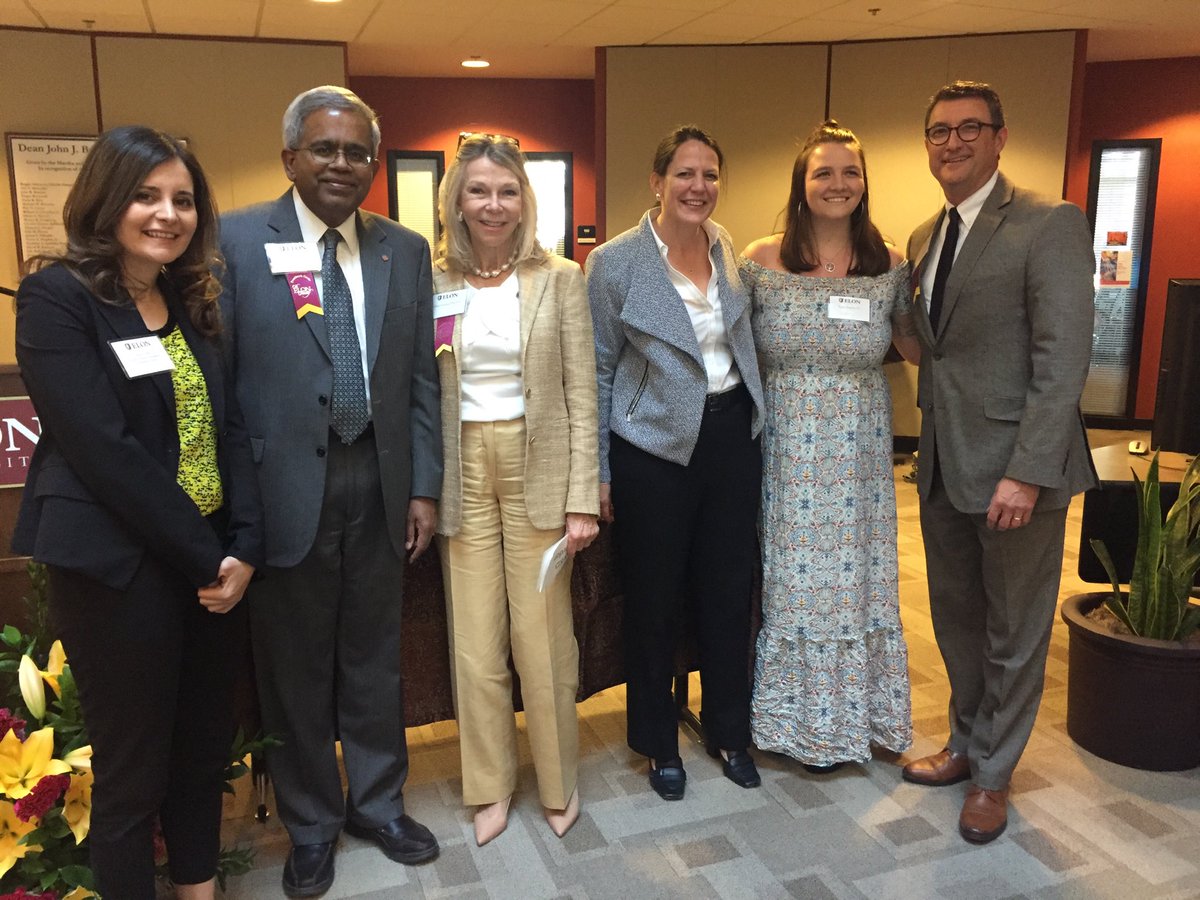
Q2. Your situation resembles what many Indian PhD students encounter at a stage when they must decide between returning home or pursuing opportunities in the Western world. How did you communicate your decision to stay in the USA with your family, especially given that your wife and son were still in India at that time? What obstacles did you confront?
Ans: Staying in US meant letting go of our entire family network and considering a fresh start in a new place. During those times, convenient communication tools like WhatsApp and Zoom didn’t exist. Making phone calls was costly, with the initial minute costing $3.50 and each extra minute costing $2, leaving no room for long discussions. Our main mode of communication was through letters. Despite this, after thorough discussions, my wife and I quickly decided to take the plunge. She had observed my work style in India and believed that staying there wouldn’t be advantageous for us. So, we embraced the challenges, and she joined me in the US after I began my PhD programme in 1984. Even then, we were unsure about whether to return to India after my studies were completed. However, as time passed, we adapted to life in the US, and we even welcomed another son during our stay.
I completed both my MBA and PhD within an impressive three years and nine months, initially driven by the idea of eventually returning to India. Yet, upon completion, I recognised the potential and opportunities that the US presented, and we grew more comfortable with the notion of staying. Our journey was transformative, and we appreciate the decision we made – embracing fresh starts and seizing the opportunities that unfolded.
Q3. How would you describe your understanding of leadership and success, and how do you foresee these principles evolving within the MBA programme?
Ans: To me, success means resting peacefully at night, knowing that I’ve treated people with respect and honesty. As someone in a leadership position, I strongly believe in treating others as I would like to be treated. I place a high value on transparency and steer clear of hidden agreements. My upfront approach fosters trust and a sense of integrity. Recently, a colleague expressed gratitude after receiving a merit raise. Although we’ve had our disagreements, I made it clear that rewards are based on performance, not disagreements.
Establishing a reputation as someone who is straightforward holds great importance for me, as it nurtures trust among colleagues. Regarding the MBA programme, there are three distinct categories. Full-time MBA students aim for career advancement, pursuing better jobs or shifts in industries. Conversely, part-time and executive MBA students work while studying, often with support from their companies. As the Indian market continues to evolve, educational institutions will likely recognise the distinct demand for each type of MBA.
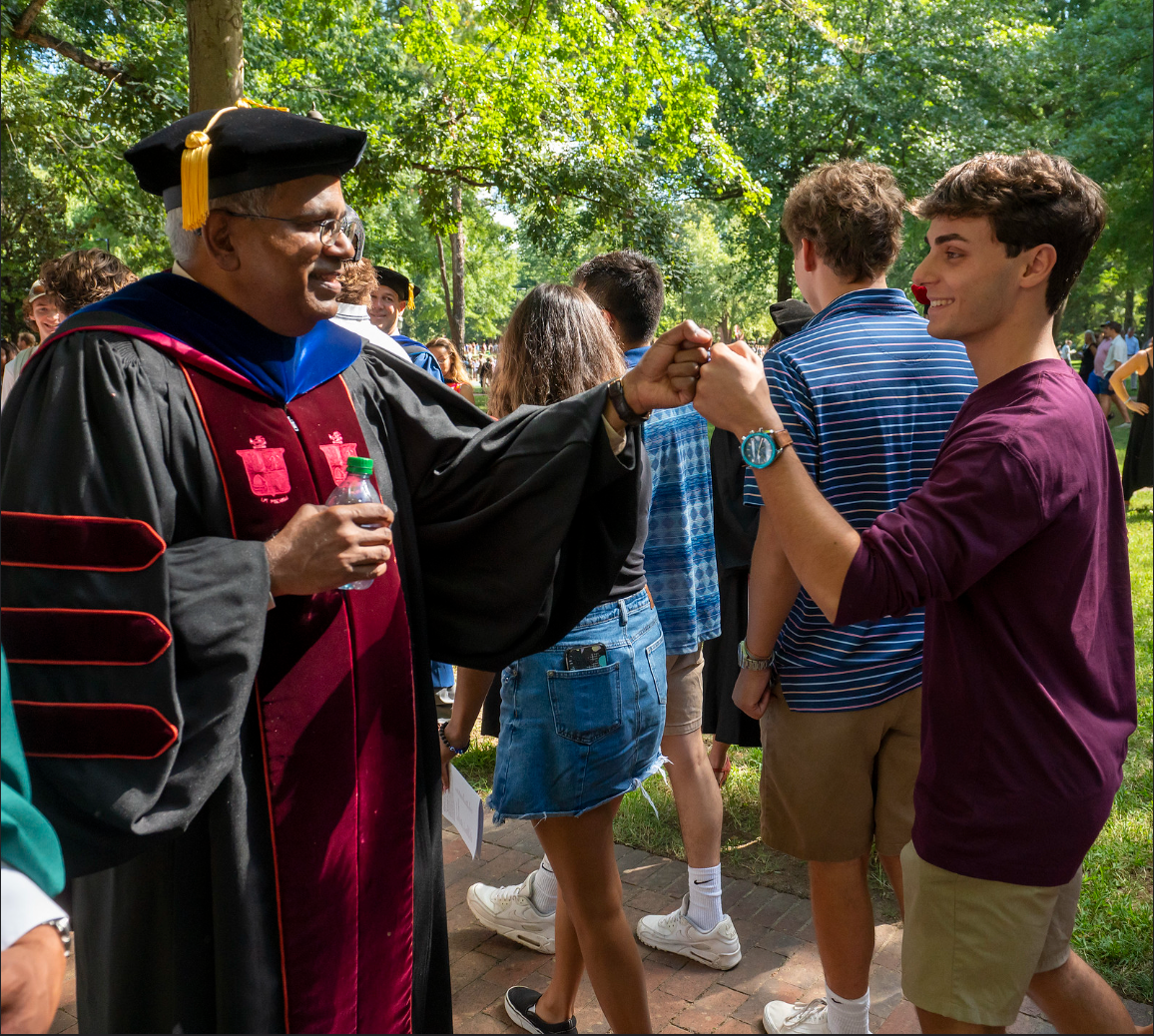
Q4. What are your views on the ongoing debate between online and offline MBA programmes?
Ans: Reflecting on our transition to online education during the COVID pandemic, I came to realise the critical importance of adapting teaching methods to the virtual realm. The skills that contributed to my effectiveness as an in-person instructor didn’t seamlessly translate to online teaching. It became evident that acquiring a skill set tailored for online instruction was essential to ensuring a smooth learning experience for both educators and students. It’s imperative for universities to allocate resources towards developing a robust online education platform that goes beyond basic tools such as Zoom. Instructional technologies play a pivotal role in supporting both professors and students, enabling convenient access to course materials and enhanced communication.
While the hybrid approach holds promise, I also recognise the value of networking opportunities when students return to in-person classes. MBA programmes thrive when they foster connections among students, allowing them to acquire knowledge and establish meaningful relationships within their cohort. Thoughtful planning, including arranging off-campus gatherings based on student proximity, can facilitate meaningful interactions. I’ve personally witnessed how institutions dedicated to this aspect excel in enhancing their students’ MBA experiences.
In conclusion, successful online or offline education in a rewarding MBA programme demands dedication, investment, and a well-considered networking strategy. As we continue navigating these evolving times, it remains essential to ensure an inclusive and engaging learning environment.
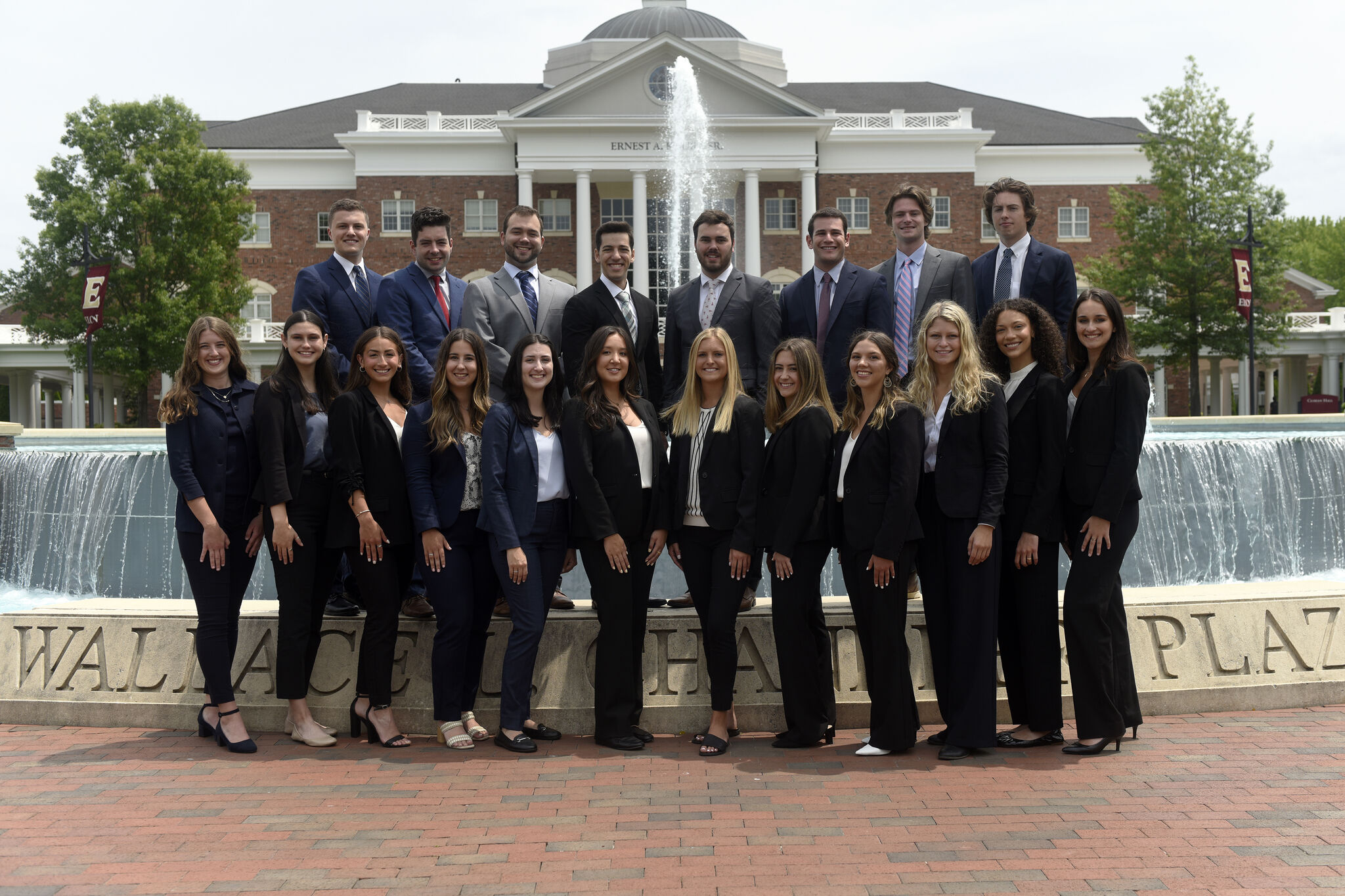
Q5. Could you share your experiences throughout the COVID pandemic and elaborate on the lessons you’ve drawn from these experiences to enhance programmes at Elon University?
Ans: Through our experience at Elon University during the pandemic, we gained a crucial insight – a pivotal decision had to be made by our senior administration: whether to invest in online technology. Simply having a camera in the classroom wasn’t enough; a fully equipped studio was required to ensure effective interaction and engagement with all students. However, establishing such facilities and providing a reliable bandwidth came with a substantial cost. The question that arose was whether we were prepared to make this investment.
Unfortunately, it became apparent that our senior administrators didn’t prioritise such an investment. Consequently, we opted for a hybrid approach, incorporating both in-person and online components into our MBA programme. This choice was guided by input from our executive and part-time MBA students, who indicated a preference for in-person classes. They believed that a full-time, face-to-face format set our programme apart from others in the market. As a result, we decided to uphold this competitive distinction, effectively catering to our intended audience.
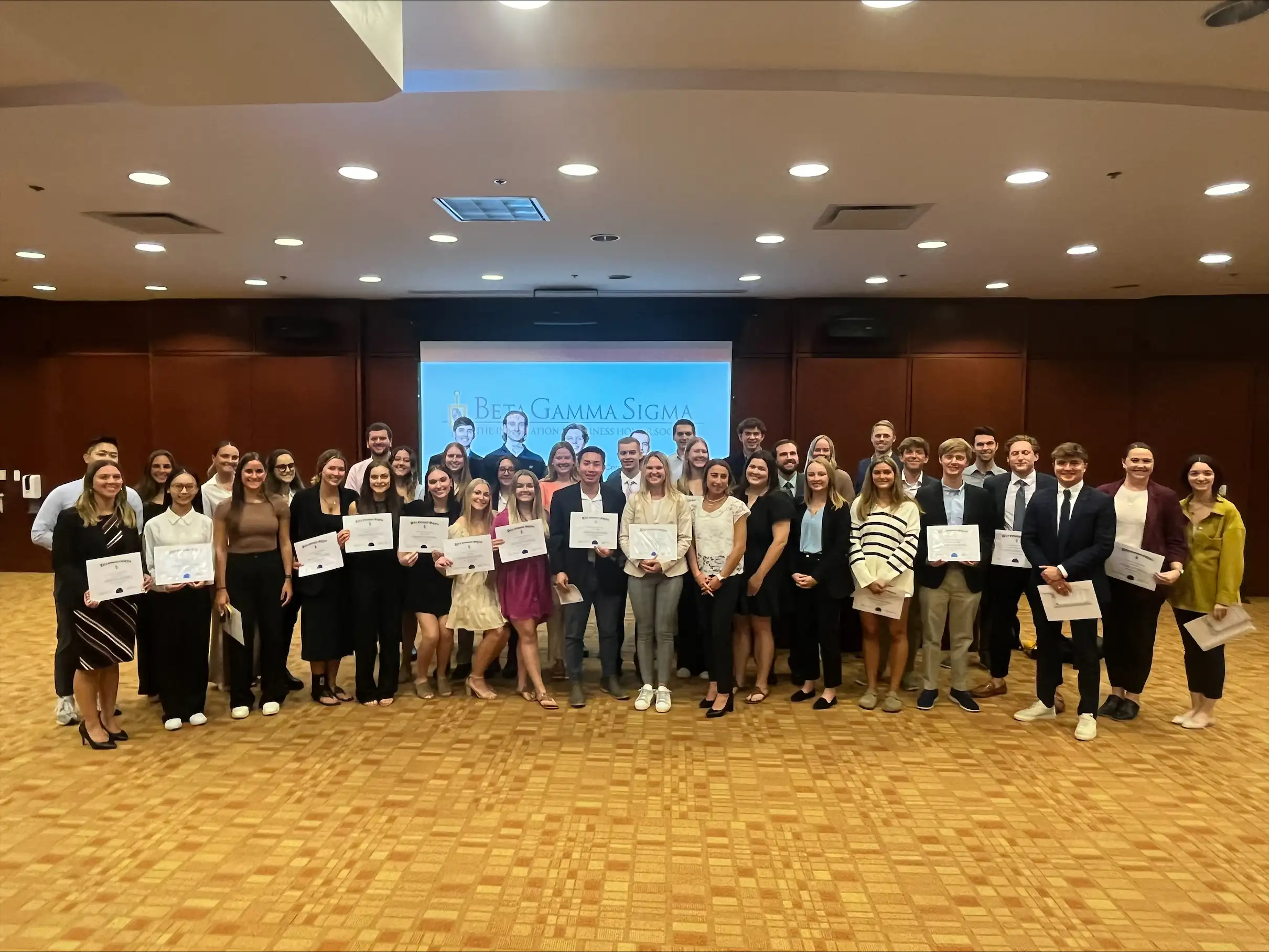
Q6. Could you share with us your intake of students from your MBA and PhD programmes, as well as the trends in enrolment figures you observe on an annual basis?
Ans: We have three Masters programmes: MBA, Master of Science in Business Analytics, and Master of Science in Accounting. The MSBA and MSA are designed for individuals with little to no experience. Personally, I have been advocating that students in the MBA programme should possess some level of prior work experience. In my own journey, I pursued my MBA after accumulating six years of professional experience.
I often encountered students fresh out of undergraduate programmes who, although intellectually capable, lacked the practical exposure needed to contribute substantively to case discussions. Thus, for our MBA programme, we stipulate a minimum of two years of experience as a prerequisite for application. Concerning the annual admissions, we typically enroll around 100 students each year.
Q7. During your tenure at Babson College, you substantially modified the MBA curriculum. Could you elaborate on the changes you have introduced at Elon and also outline any proposed changes for the MBA programme?
Ans: In the world of MBA programmes, a pressing challenge is the swift commoditisation of the degree. Elon University’s MBA programme addresses this challenge by capitalising on its unique strengths. Valued networking and study abroad opportunities, our programme leverages the presence of executives to enhance the classroom experience. Our curriculum strikes a balance between qualitative and quantitative decision-making, placing significant importance on a liberal arts education to foster multifaceted leaders.
As students advance through the programme, their proficiency in interpersonal skills and ability to express and defend their visions become important. The advantage of small class sizes is that it enables interactive learning and personalised attention. Expanding the programme’s scale would risk compromising the high quality we deliver. The commitment of Elon University’s MBA programme lies in cultivating forward-thinking leaders by embracing its distinctive approach to business education.
Q8. In our interactions with fellow leaders of business schools across the US, we’ve observed conversations around declining admissions, inquiries about the offered return on investment (ROI), and the prevalence of similar advertisements among MBA programmes coupled with increasing fees. Could you share your insight into why pursuing an MBA continues to be a valuable decision?
Ans: I hold an MBA, a PhD from US universities, and a Master’s in Commerce from an Indian university. I draw upon the skill sets I’ve developed through my education on a daily basis. Within my business school, we have a faculty of 85 members, nearly 100 adjunct instructors, approximately 25 staff members, and 6 academic centres. This dynamic landscape keeps me occupied, but it’s integral to the efficient operation of a successful MBA programme. One key lesson I’ve absorbed is the significance of conveying the distinctiveness of our MBA programme. In a mere 15 seconds, I must succinctly convey what sets us apart and help prospective applicants recognise the value we offer. This proves to be a challenge, particularly as many MBA programmes use similar terminology.
Throughout my career, I’ve amassed valuable insights that I continue to apply today. For instance, I acquired an understanding of price elasticity and the importance of delivering value to customers rather than focusing solely on costs. Grasping industry structures and analysing factors driving costs and revenue have also proven vital both in my professional and personal capacities. For MBA students, my advice centres on prioritising what they can acquire from the programme over what the MBA can provide them. The knowledge and perspectives gained through education become assets that can benefit you across various facets of life, as it has done for me.
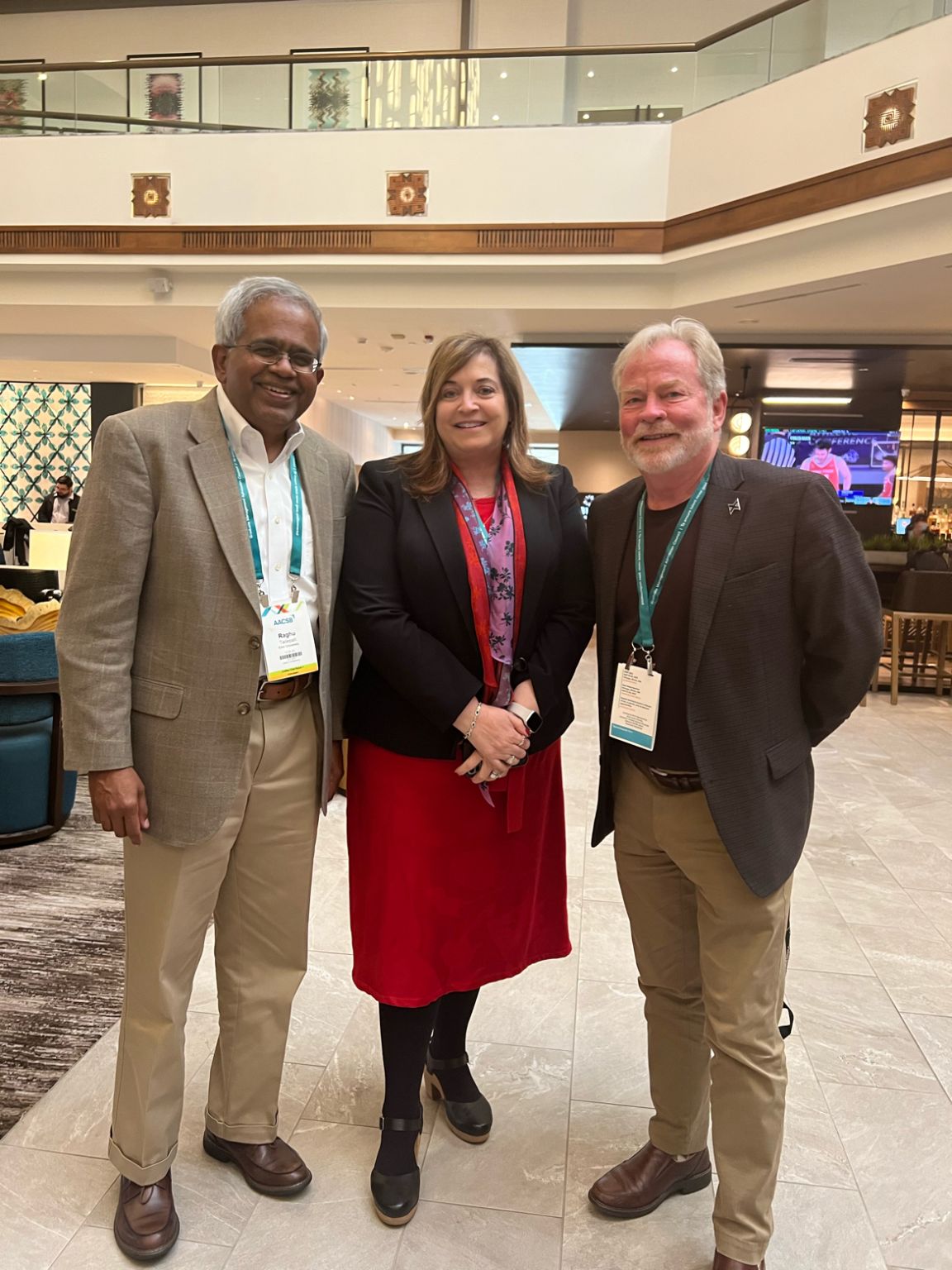
Q9. In your view, drawing from your experiences in the education domain over the past couple of decades, what modifications or enhancements do you believe should be implemented in the curriculum or teaching methodologies?
Ans: In today’s world, data holds immense significance, and it appears that everyone, including students, tends to rely heavily on data-driven conclusions. Nonetheless, I staunchly believe this approach is misguided. While data provides valuable insights, we must also exercise judgement and experience in decision-making. Simply relying on data without considering other factors is akin to employing a computer programme with inflexible “if-then” logic. As an educator, I stress the importance of a deliberate strategy rather than blindly following data. We must nurture students’ capacity to trust their judgement and experiences, enabling them to make well-informed decisions in the real world. Entrepreneurial thinking is also pivotal, not solely centred on establishing businesses but rather on seeking innovative solutions to enhance existing processes and maximise opportunities.
Moreover, a global mindset is vital in today’s interconnected economies. Despite the prevalence of localised thinking, we must encourage our students to adopt a broader perspective. The challenge lies in striking a balance between thinking globally and acting locally. Instilling this mindset in our students will unquestionably lead to success in our globalised world.
Q10- Numerous companies, Tesla included, now favour individuals who possess the ability to both lead teams and excel in achieving tangible results. What is your perspective on this? Do educational institutions need to adjust to this evolving demand?
Ans: I firmly believe that aligning the MBA course curriculum with the needs of recruiters significantly hinges on the quality and diversity of faculty profiles a B-school offers. At Elon, throughout the faculty recruitment process, we prefer a wide array of candidates who possess specialised skills. While many excel within their respective roles, there are those who go above and beyond expectations, aiming to elevate our institution. Our faculty have put forward initiatives like establishing centres for Analytics or Financial Literacy, showcasing both foresight and ambition. Similarly, within our MBA programme, we place significant value on students who demonstrate complete dedication to their passion. We seek individuals who aren’t content with merely fulfilling tasks perfunctorily but rather aspire to innovate and elevate their careers. Being entirely committed entails consistently seeking avenues for improving products/companies and actively proposing and implementing positive changes.
For example, companies like Tesla actively seek employees who embody this proactive mindset—individuals who challenge boundaries and are wholeheartedly committed to the company’s prosperity. Those satisfied with a conventional 9-to-5 attitude will unlikely thrive in such dynamic environments. The path to success lies in adopting a proactive approach and actively contributing to the advancement and prosperity of the organisation.
Q11. What is your advice or insight for the students’ community to help them maximise their performance?
Ans: My message to students is simple: Embrace diversity with total commitment; it’s an absolute imperative. We must uphold the rights of every individual, irrespective of distinctions such as race, gender, or LGBTQ identities. As leaders, we need to bring out the best in each person, ensuring they feel valued and included in discussions. The diversity of perspectives is vital, and even differing political viewpoints are acceptable.
On campus, our primary focus is the success of our students. We rally together around this shared purpose, putting aside any divisive issues. As leaders, our aim is to unite people with common goals for genuine achievement. We shun the path of division taken by politicians. Instead, we prioritise the growth and accomplishments of our students, fostering an environment where everyone can thrive harmoniously. That’s what truly counts.
Q12. Are you engaged in collaborations with business schools in India, and are you involved in teaching any courses for Indian students?
Ans: I actually receive more requests than I can handle. I pursued my M.Com. in Vishakhapatnam. There’s a university called GITAM University where I am scheduled to speak to their students on July 23rd for one hour. I will be delivering a welcome speech to them. I also visited the Indian Institute of Management in Visakhapatnam in December.
During the 1980s, when I was studying in India, there were limited options for pursuing an MBA, such as the three IIMs or XLRI. Consequently, I decided to come to the US for further studies. However, I am now very excited about the Indian MBA market. I recently met someone from IIM Bodh Gaya in Bihar, and it was fascinating to learn that they strongly emphasise mindfulness as a key component of their MBA programme, which is quite fitting for a city like Bodh Gaya. What truly energises me is the fact that MBA colleges and directors are actively seeking ways to differentiate their programmes. They are focusing on both global strategies and their contribution to the local area, which I find very heartening. The MBA landscape in India is evolving positively, and this emphasis on local impact is vital for achieving success.
Q13. Being situated in the US, you possess an external viewpoint that allows you to observe the functioning of Indian business schools. What is your personal opinion on the aspects where Indian schools could enhance themselves to attain global recognition and further enrich their robust educational offerings?
Ans: I hold a deep admiration for the Indian education community as a whole. The emphasis on rankings is a perspective we are keenly attuned to, and there’s nothing inherently amiss with that. However, we can also exhibit a sense of impatience. Consider this: Institutions like Harvard and others have been in existence for centuries. Conversely, Indian universities do not share such extensive histories. During the era of independence, we diligently worked to carve out our unique niche and establish educational priorities. Responding to your query, many of the schools in India that I’ve had the chance to observe are commendable, although not without exception. They are putting in earnest efforts, and those previously mentioned possess the potential to evolve even further. Their aspirations to enhance their standing and eventually secure positions in the QS world rankings are palpable. It’s a journey that demands time, yet I am confident that the student community in India will appreciate the strides taken.
Whether we are referring to Vishakhapatnam, Shiv Nadar University, or institutions like NMIMS in Mumbai, they all boast significant strengths. These establishments have highly motivated students striving for success, growing corporate support, and an increasing contingent of dedicated faculty. During my academic tenure, we were instructed by only a few PhD holders, a scenario that has since evolved. More scholars are entering the fold, and private-sector engagement is injecting additional resources into the education sector. While the alignment of all these components may require time to grow, I anticipate that within approximately 15 years, you will witness a rapid ascent of Indian schools in global rankings, whether or not I am here to witness it firsthand.
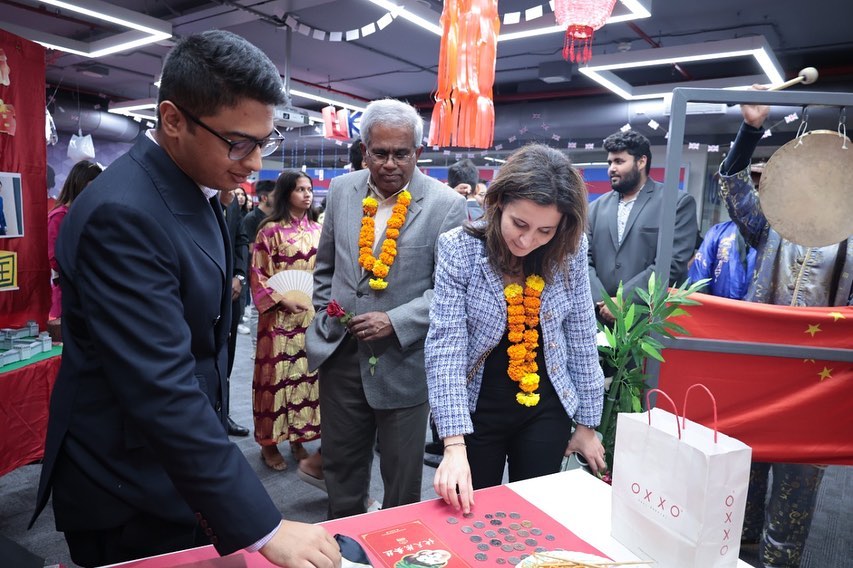
Q14: What guidance would you offer to an Indian individual aspiring to pursue an MBA in the United States when it comes to selecting the most suitable school?
Ans: I will advise these MBA aspirants to follow three aspects:
- Take into account your priorities when making a choice regarding MBA programmes out of India.
- Determine whether your goal is to return to India or remain in the US. If you opt to stay in the US, consider MBA programmes that are coupled with STEM-certified offerings for expanded opportunities.
- Seek out schools that boast robust ties to local industries, enhancing your career prospects as an international student.
Schools with smaller international student populations may present advantages, as competition for career services tends to be lower. Conduct a thorough assessment of your financial capacity, perceiving the MBA as either an expense or an investment. Conduct evaluations of schools with these factors in mind, aiming for the best possible alignment. A thoughtful consideration of these aspects, you can arrive at a well-informed decision that resonates with your aspirations and optimises your forthcoming accomplishments.
Q15. What type of Indian student would significantly enhance the quality of your MBA programme, and what advice do you wish to convey to them?
Ans: The student from India who chooses to come to Elon should understand that our school is not what you would call a brand-name school. We are what we are, and if you are seeking a brand name, then you should look elsewhere, as other schools fit that description. However, if you are more interested in what the MBA programme can do for you than seeking recognition by wearing a university sweatshirt, then you will have a terrific experience here. Our professors and fellow students will know you by name, and there are plenty of opportunities for meaningful interactions and growth. Ultimately, it comes down to what you want from your education and experience. If you prioritise personal development and a close-knit community over a brand name, then our school is the right fit for you.
Q16. What are your thoughts on the significant challenge posed by ChatGPT and other AI technologies in ensuring academic integrity and preventing cheating?
Ans: Investing around 6 or 7 grand into integrating artificial intelligence into our classes was a decision I embraced wholeheartedly. Let me share an insightful teaching approach I use. In my management concept course for undergraduates, we delve into real-world cases. Instead of accepting their initial suggestions, I encourage students, most in their early twenties with limited work experience, to think like CEOs. I ask them, “If you were the CEO, what questions would you ask?” It’s all about critical thinking – asking the right questions to get valuable answers. To demonstrate AI’s potential, I experimented with ChatGPT for a friend’s birthday message. The result was a heartfelt and unique wish. However, I realise the importance of preserving academic rigour. As educators, we must guide students to use AI as a resource, not a crutch. When assigning essays, I prompt them to generate questions about the topic, encouraging active participation and deep learning. My vision is for students to become co-creators of knowledge, asking insightful questions that lead to innovation and progress. By fostering a curious mindset, AI can complement education and empower future leaders to thrive in a rapidly changing world.
Explore additional details about Elon University’s Martha and Spencer Love School of Business by watching this video.
https://www.youtube.com/watch?v=6kb4CmW-RvQ
To access the full interview visit out YouTube Channel – Subscribe Now.
Thank you, dear readers, for your incredible support and enthusiasm for this interview. We’re thrilled to have you engaged on PG, and there’s more exciting content coming your way. Be sure to stay active on our platform for more captivating reads, and don’t forget to check out our recent articles here. Happy reading!
